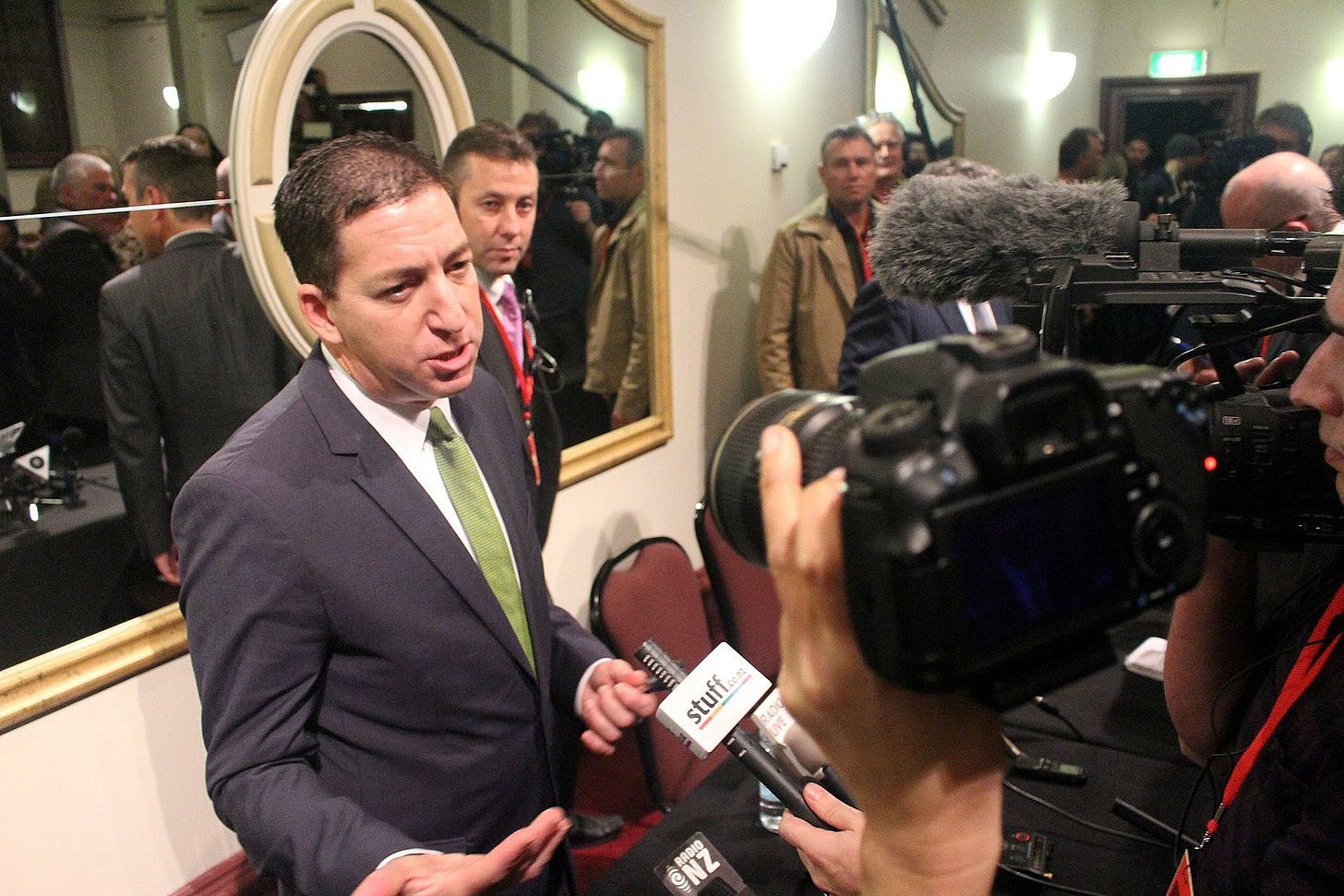Glenn Greenwald's resignation from The Intercept
The award-winning journalist publicly and acrimoniously quit from the media outlet that he co-founded in 2013

Glenn Greenwald recently resigned very publicly and very disgustedly with the media organization he co-founded in 2013, The Intercept.
Today I sent my intention to resign from The Intercept, the news outlet I co-founded in 2013 with Jeremy Scahill and Laura Poitras, as well as from its parent company First Look Media.
The final, precipitating cause is that The Intercept’s editors, in violation of my contractual right of editorial freedom, censored an article I wrote this week, refusing to publish it unless I remove all sections critical of Democratic presidential candidate Joe Biden, the candidate vehemently supported by all New-York-based Intercept editors involved in this effort at suppression.
The censored article, based on recently revealed emails and witness testimony, raised critical questions about Biden’s conduct. Not content to simply prevent publication of this article at the media outlet I co-founded, these Intercept editors also demanded that I refrain from exercising a separate contractual right to publish this article with any other publication.
The Intercept naturally responded in kind by defending its editorial decisions and its staff:
While he accuses us of political bias, it was he who was attempting to recycle the dubious claims of a political campaign — the Trump campaign — and launder them as journalism.
We have the greatest respect for the journalist Glenn Greenwald used to be, and we remain proud of much of the work we did with him over the past six years. It is Glenn who has strayed from his original journalistic roots, not The Intercept.
None of the sniping from either side is particularly important, however, in the light of a single undisputed fact: Greenwald had a contractual guarantee from The Intercept that he would not be edited except under certain circumstances and/or he could shop his column to another media outlet if they didn’t want to publish it for whatever reason.
Glenn Greenwald’s decision to resign from The Intercept stems from a fundamental disagreement over the role of editors in the production of journalism and the nature of censorship. Glenn demands the absolute right to determine what he will publish. He believes that anyone who disagrees with him is corrupt, and anyone who presumes to edit his words is a censor.
Glenn “demands that right” because he has a contract with The Intercept that guarantees him that right. The Intercept, whether you want to call it censorship or not, chose to violate Greenwald's contract by trying to edit his column and refusing to allow him to publish it elsewhere.
This is the only relevant point in the whole controversy. You can disagree that Greenwald or any journalist should have such a contract, but it was agreed upon by both sides and it was The Intercept who violated it. His resignation, then, is perfectly justified.


